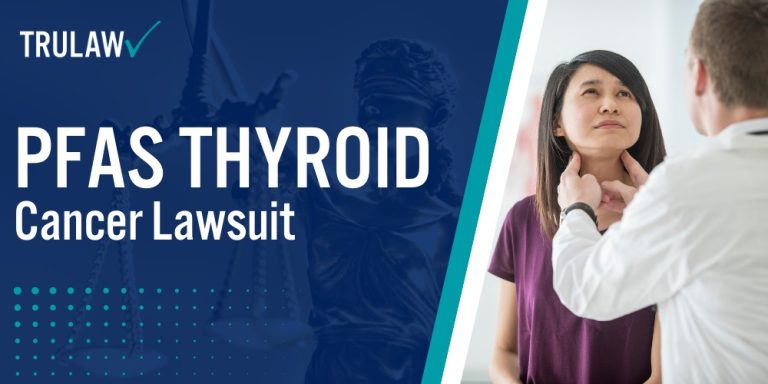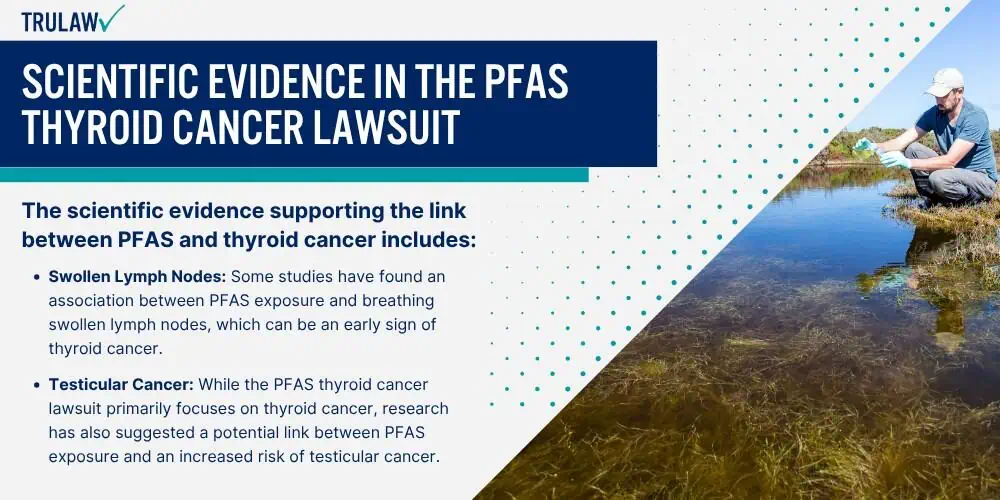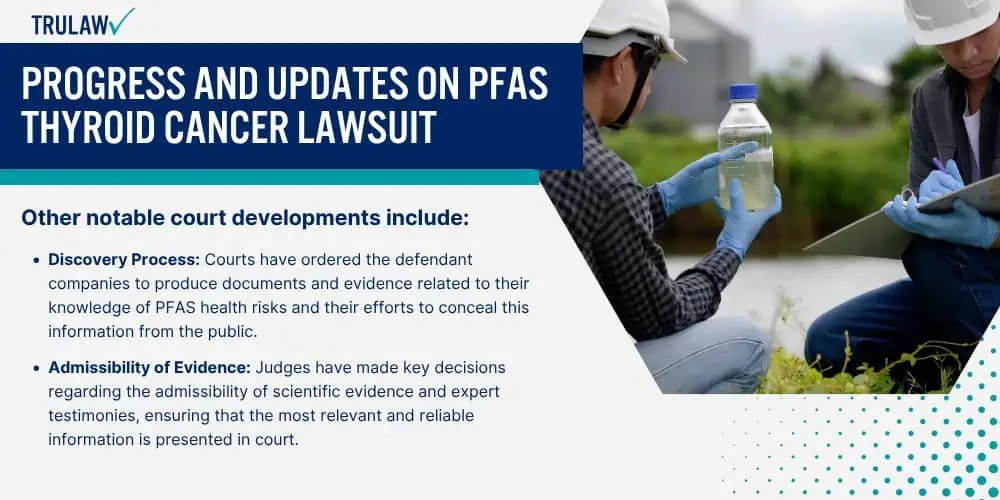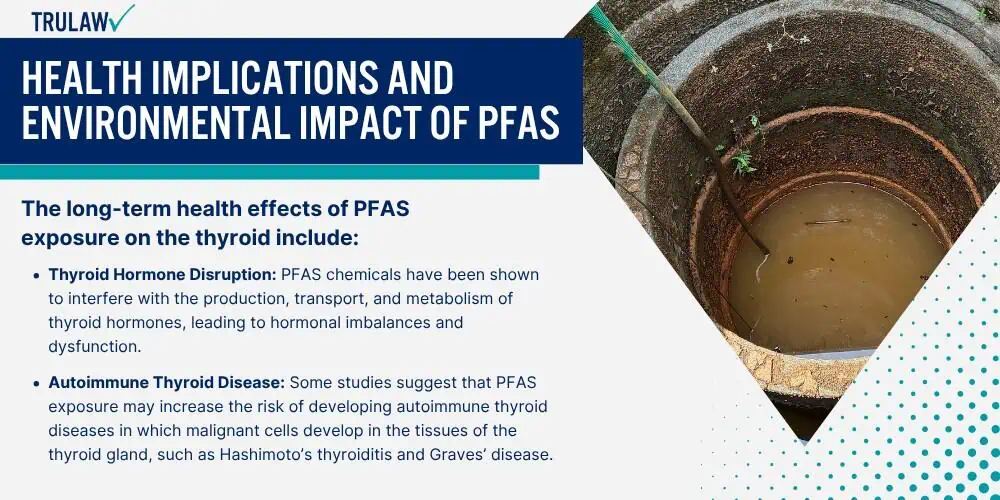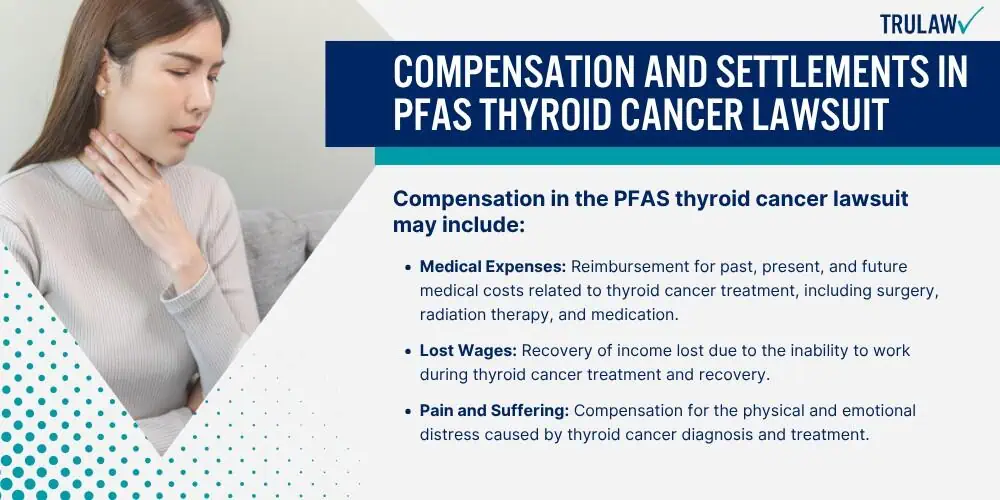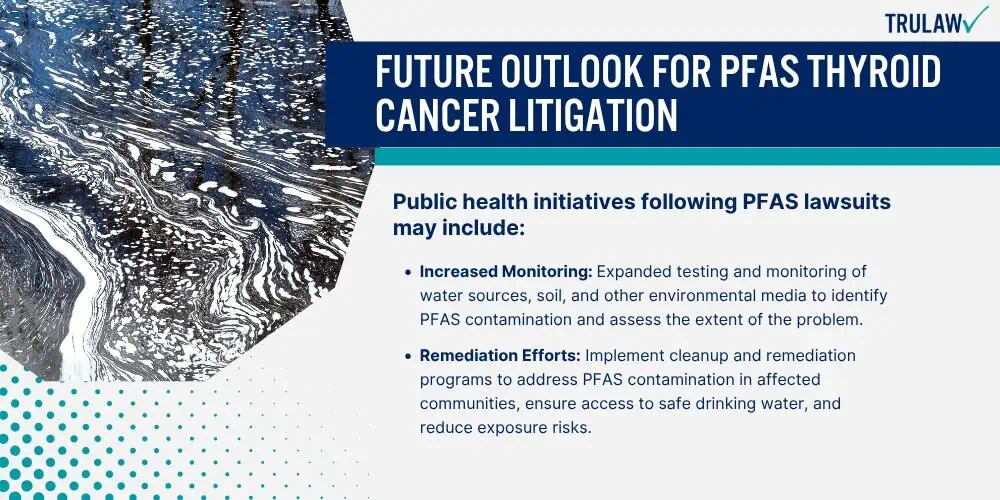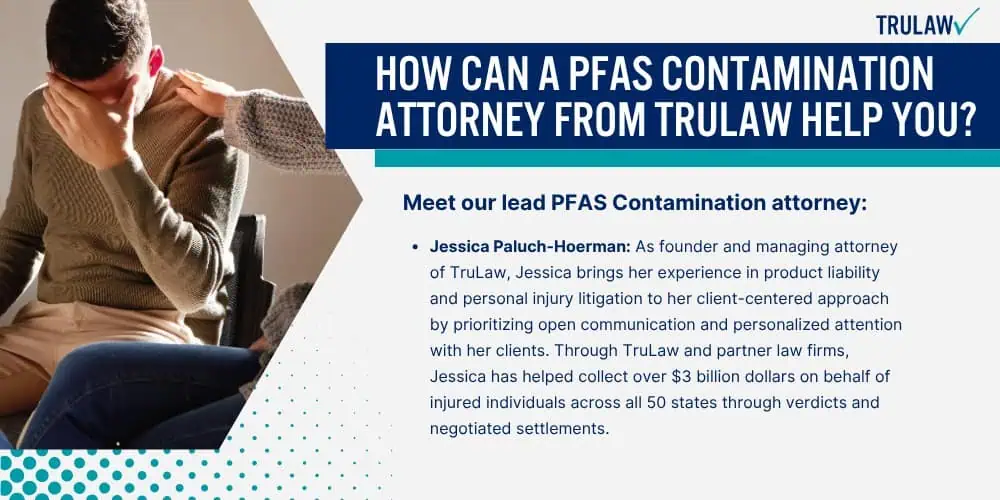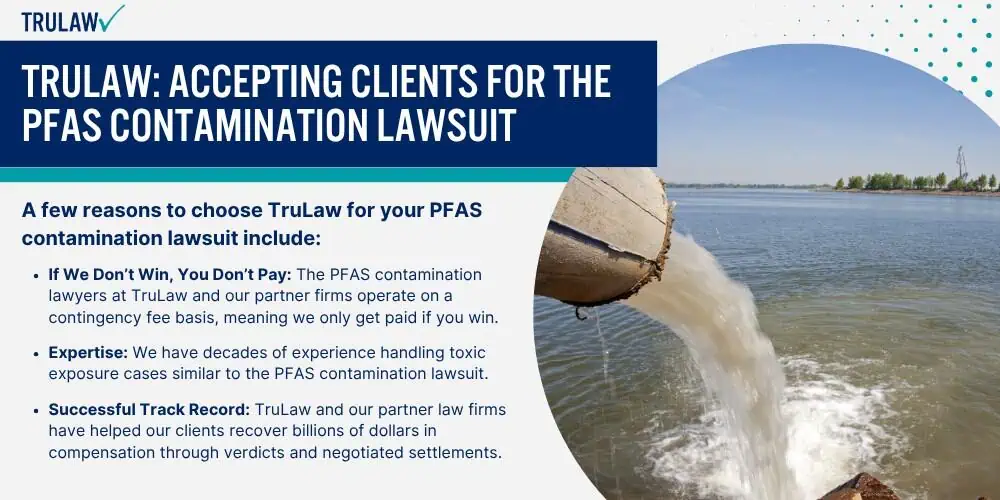The PFAS thyroid cancer lawsuit represents a significant legal battle against major chemical corporations, seeking to hold them accountable for the production and widespread use of per- and poly-fluoroalkyl substances (PFAS), also known as “forever chemicals,” and their alleged link to thyroid disease and thyroid cancer.
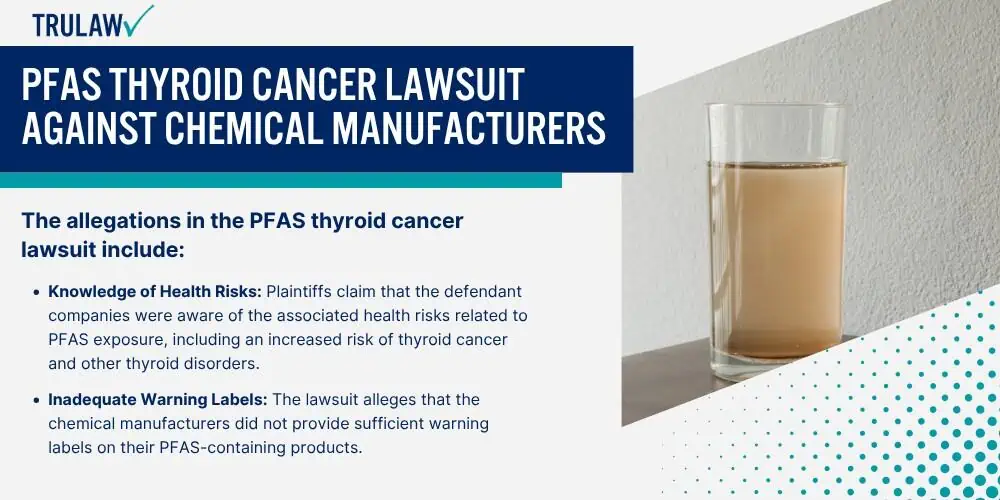
As the number of individuals affected by PFAS-related health risks continues to rise, this lawsuit aims to secure justice for those who have developed thyroid cancer due to PFAS exposure.
Major Corporations Named in PFAS Thyroid Cancer Lawsuits
Several prominent companies, including 3M, DuPont, and Chemours, have been named as defendants in the PFAS thyroid cancer lawsuit.
These corporations have been involved in the manufacture and distribution of PFAS-containing products, such as firefighting foam, non-stick cookware, and water-resistant textiles.
The lawsuit alleges that these companies were aware of the potential serious health risks associated with PFAS exposure but failed to adequately warn consumers and take appropriate measures to mitigate the dangers.
Allegations of Negligence and Failure to Warn in PFAS Cases
At the core of the PFAS thyroid cancer lawsuit are allegations of negligence and failure to warn against the defendant corporations.
Plaintiffs argue that these companies had a duty to ensure the safety of their products and to inform the public about any potential hazards, including the risk of developing thyroid cancer.
The lawsuit contends that the defendants endangered the health of countless individuals who were exposed to PFAS chemicals through contaminated water, food, and consumer products by failing to do so.
The allegations in the PFAS thyroid cancer lawsuit include:
- Knowledge of Health Risks: Plaintiffs claim that the defendant companies were aware of the associated health risks related to PFAS exposure, including an increased risk of thyroid cancer and other thyroid disorders, but failed to take appropriate action to mitigate these risks.
- Inadequate Warning Labels: The lawsuit alleges that the chemical manufacturers did not provide sufficient warning labels on their PFAS-containing products, leaving consumers unaware of the serious health problems associated with their use.
- Environmental Contamination: The PFAS thyroid cancer lawsuit also addresses the issue of PFAS contamination in water sources and its role in exposing countless individuals to these toxic substances.
These allegations form the foundation of the personal injury claims and toxic exposure claims against the chemical manufacturers, seeking to hold them responsible for the harm caused by PFAS and the development of thyroid cancer in affected individuals.
